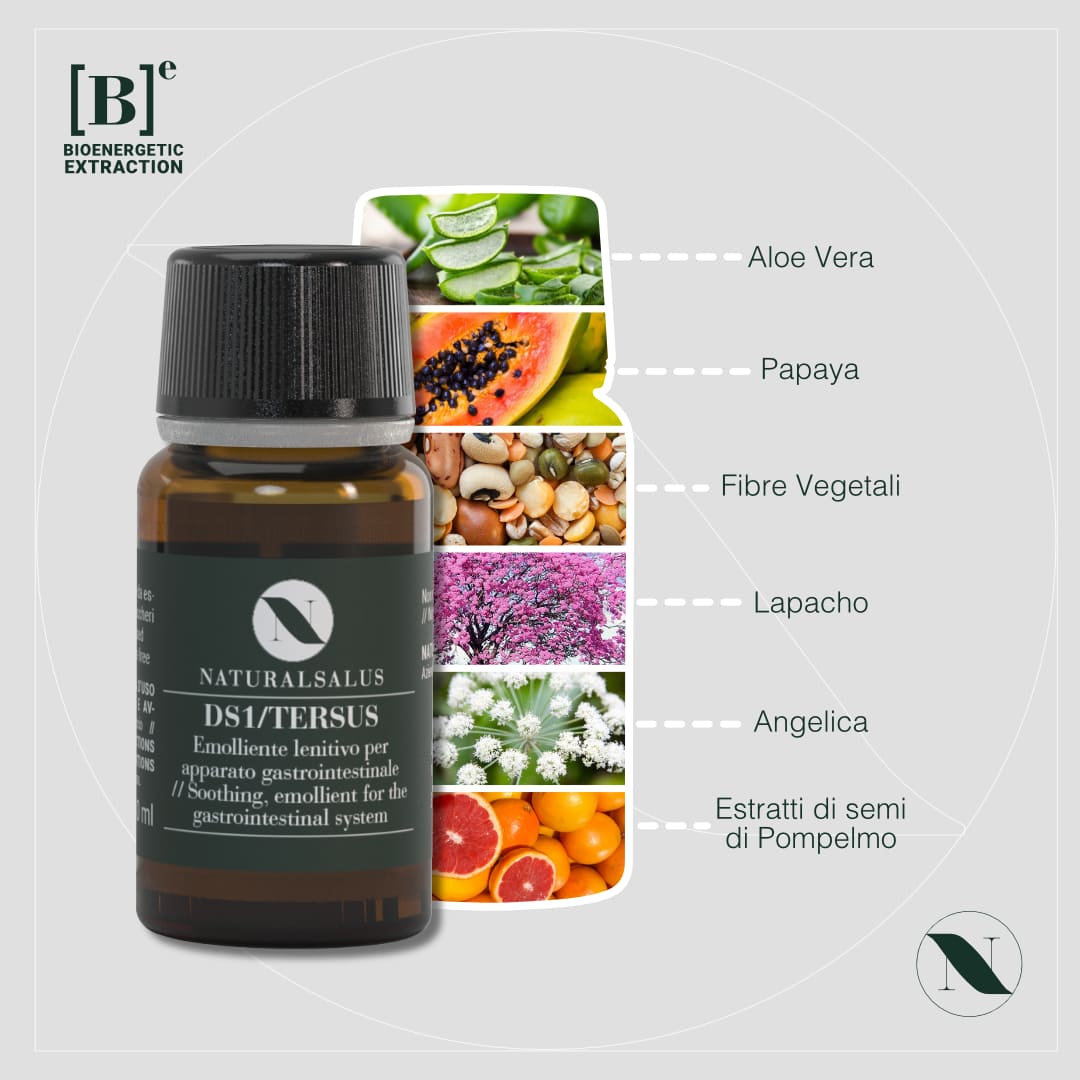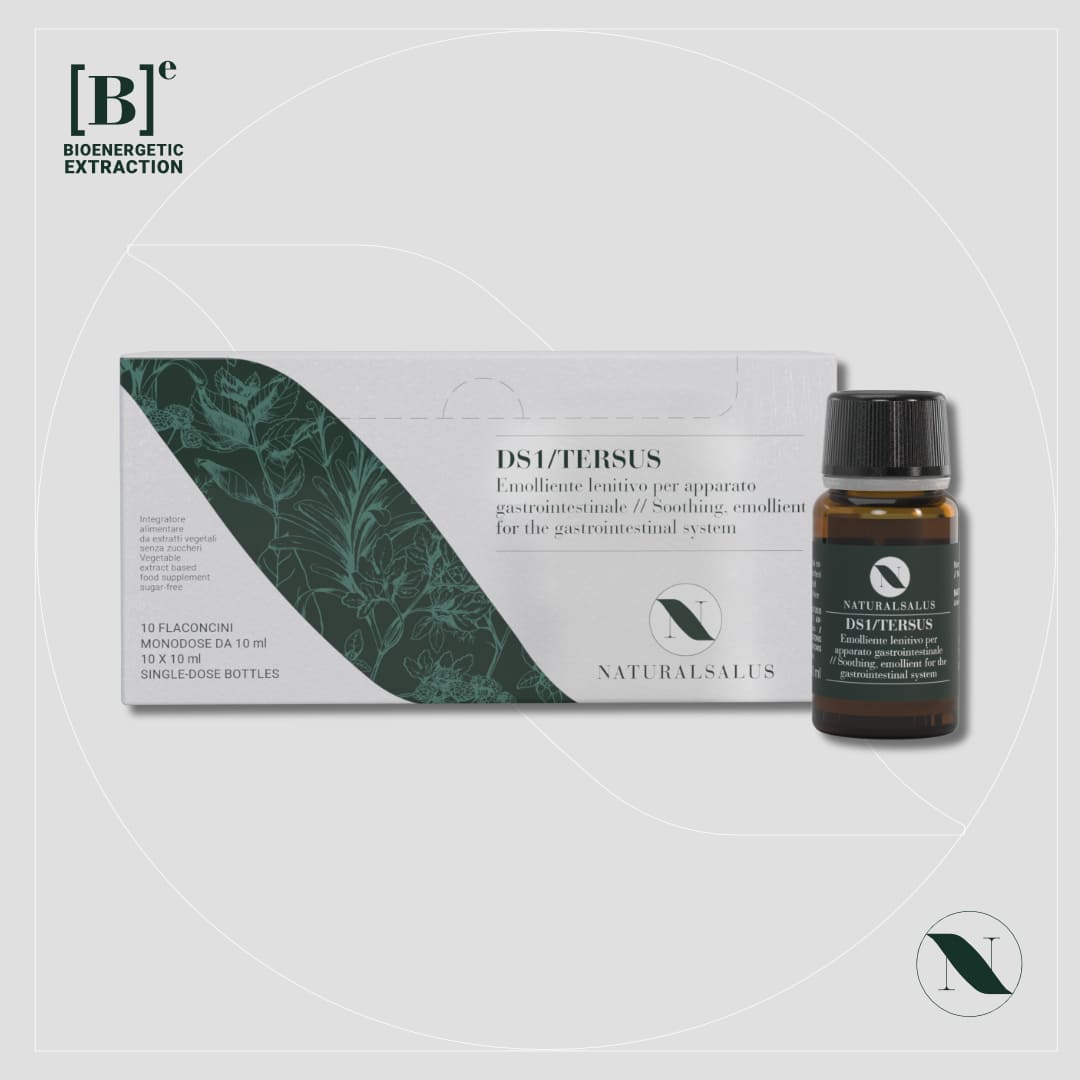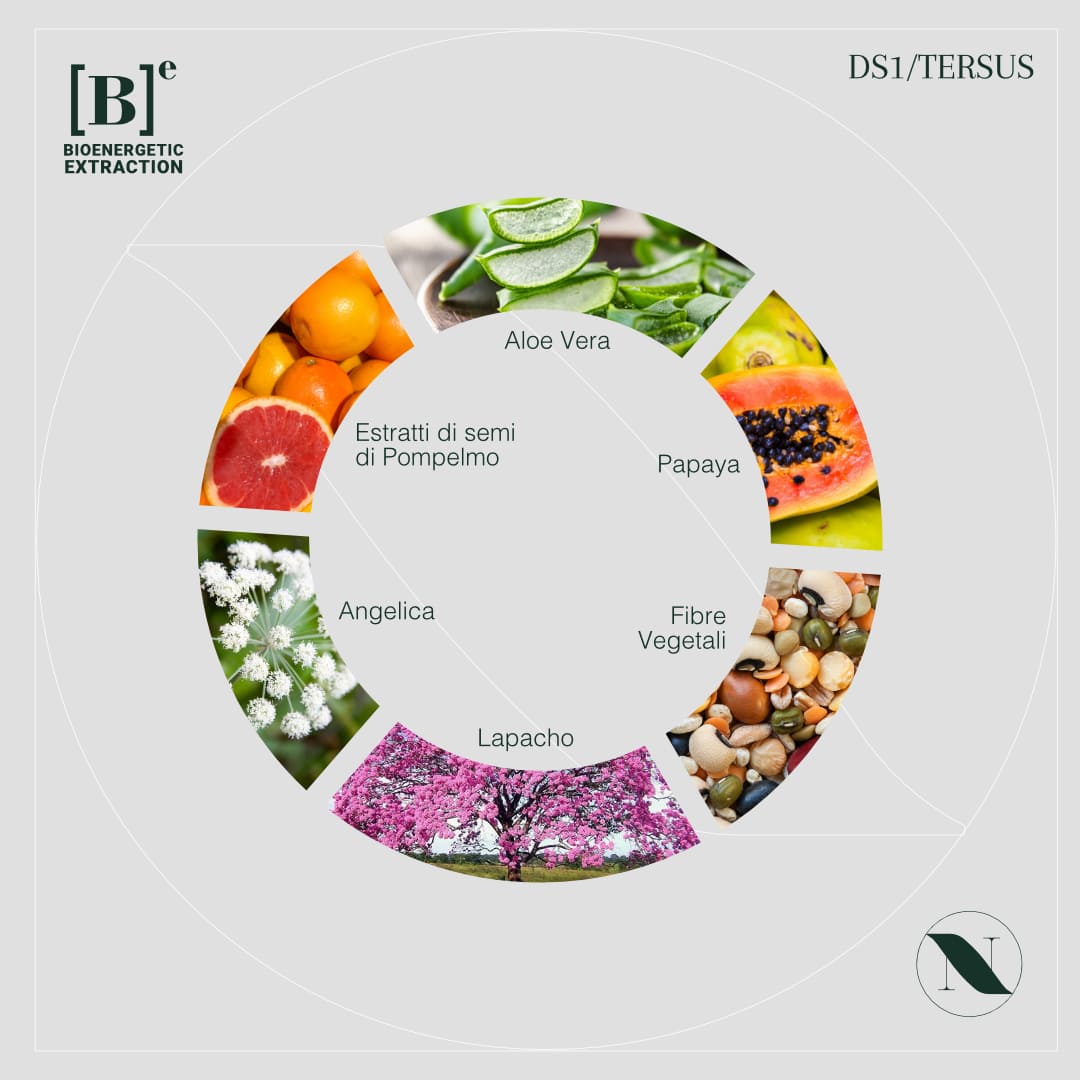

DS1/TERSUSⓇ - Natural supplement for colitis and colon wellbeing
Intestinal rebalancing and purification - natural colitis and irritable bowel syndrome support
Bloating, abdominal spasms, erratic evacuations, sensitive colon: irritable bowel syndrome (IBS) is one of the most common and consequential digestive disorders. Thanks to its targeted and balanced phytocomplex, DS1/TERSUSⓇ by NATURALSALUS is a conveniently bottled liquid food supplement, designed to restore intestinal health.

DS1/TERSUSⓇ - Natural supplement for colitis and colon wellbeing
Sale price€27,40



Explore other areas of wellbeing
Discover all our other products, organised by condition, benefit, stage of life or lifestyle, and find the natural supplements that best suit your needs.



